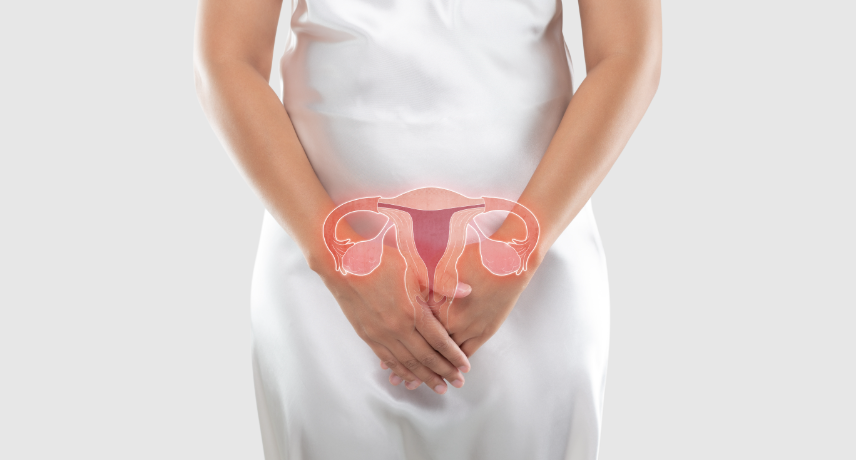Cervical cancer is one of the most preventable types of cancer, yet it remains a major health concern for women worldwide. The key to beating it is awareness-understanding the risk factors and spotting early symptoms can make all the difference. In this blog, we'll break down everything you need to know about cervical cancer.
Cervical cancer develops in the cervix, which is the lower portion of the womb connecting it to the vagina. The primary cause is a long-term infection with specific types of the human papillomavirus (HPV). Normally, the body's immune system fights off HPV naturally; however, sometimes the virus remains, causing cells to grow abnormally, which can eventually result in cancer.
Risk Factors: What Increases Your Chances?
While any woman can develop cervical cancer, some factors make it more likely. Let's explore the biggest risks:
- Human Papillomavirus (HPV) Infection: HPV is the number one risk factor for cervical cancer. There are over 100 types of HPV, but only a few, such as HPV 16 and HPV 18, are responsible for most cervical cancer cases. The virus spreads through sexual contact, and since it often has no symptoms, many people don't even realise they have it.
- Smoking: Women who smoke are at an increased risk of developing cervical cancer. This is because tobacco chemicals weaken the immune system, making it harder for the body to fight off HPV infections.
- Weakened Immune System: If your immune system is compromised-due to conditions like HIV/AIDS or certain medications-it may struggle to keep HPV in check. This makes you more susceptible to persistent infections that can lead to cancer.
- Long-term Use of Contraceptive Pills: While birth control pills are generally safe, using them for more than five years may slightly increase the risk of cervical cancer.
- Multiple Sexual Partners: The more sexual partners you have (or if your partner has had multiple partners), the higher the chance of being exposed to HPV.
- Early Sexual Activity: Having sex at a young age raises the risk of HPV. As the cervix is still growing, it's more prone to viral changes.
Cervical cancer symptoms: early warning signs
One of the toughest things about cervical cancer is spotting it early because it typically doesn't show clear symptoms at first. However, certain signs become noticeable as the cancer advances. Keep an eye out for these warning signals:
- Abnormal vaginal bleeding: Bleeding outside your normal periods, after sexual intercourse, or following menopause is often an early indication. If you've noticed sudden changes, like heavier bleeding or periods lasting longer than usual, you should see your doctor.
- Pelvic pain or discomfort: Constant pain in your lower abdomen or pelvis, particularly unrelated to your menstrual cycle, can suggest cervical cancer. In more advanced cases, this discomfort may also spread to your lower back or down your legs.
- Painful intercourse: Experiencing pain during sex, especially if accompanied by bleeding, might point towards cervical cancer. Although many conditions can cause discomfort during intercourse, it's crucial to rule out anything serious.
- Unusual vaginal discharge: Changes in your vaginal discharge, such as a watery consistency, blood-tinged appearance, or a strong, unpleasant smell, may be an early symptom of cervical cancer.
- Frequent or painful urination: An increased urge to urinate or experiencing pain while urinating could mean cervical cancer is affecting your bladder. Although these symptoms might also indicate a urinary tract infection (UTI), prolonged or recurring issues should be assessed by a doctor.
- Sudden weight loss or persistent tiredness: Like many other cancers, cervical cancer may cause unexpected weight loss, reduced appetite, or ongoing fatigue. If you're constantly feeling exhausted even after adequate rest, it's important to consult your healthcare provider.
How Can You Reduce Your Risk?
The good news is that cervical cancer is largely preventable. Here's how you can lower your risk:
- Get Vaccinated Against HPV: The HPV vaccine is highly effective in preventing infections from cancer-causing HPV strains. It's best taken before becoming sexually active, but even if you've already been exposed to HPV, it can still offer protection.
- Attend Regular Screenings: Pap smears can detect abnormal cells before they become cancerous. HPV testing can detect the HPV virus directly.
- Practise Safe Sex: Using condoms can lower the risk of HPV transmission.
- Quit Smoking: If you smoke, quitting will help strengthen your immune system and lower your cervical cancer risk.
- Maintain a Healthy Lifestyle: Eating a balanced diet, staying active, and managing stress can all help your immune system fight off infections.
When Should You See a Doctor?
If you notice any of the symptoms mentioned earlier, don't panic-but don't ignore them either. Many of these signs can be caused by conditions other than cervical cancer. However, only a medical professional can give you a definite answer. The sooner cervical cancer is detected, the easier it is to treat.
Cervical cancer doesn't have to be a silent killer. By understanding the risk factors, paying attention to early warning signs and taking preventive steps, you can protect yourself and encourage others to do the same. If you haven't had your cervical screening yet, consider booking an appointment at our hospital-it's a small step that could save your life.
